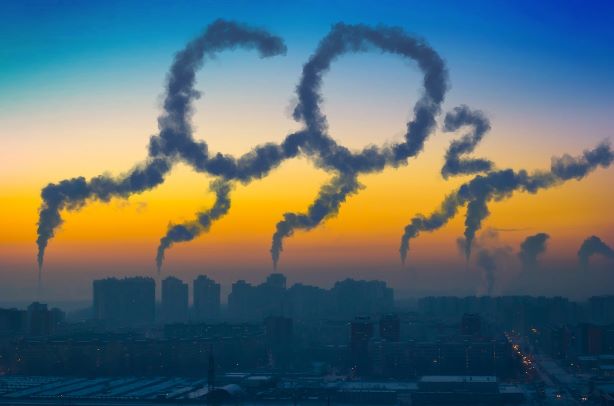

Bioenergy with carbon capture and storage – better known by the acronym “BECCS” was born in the early 2000s as a concept and at the time was seen as one of the most viable and cost-effective negative emissions technologies.
For two decades, BECCS has been in discussion among the climate scientists as a Backstop Technology if there was bad news for climate change. The concept defined by Kenneth Möllersten, a Swedish scientist, who wrote a paper that made some eye-catching claims:
“Technologies that can rapidly remove GHGs from the atmosphere will play an important role, particularly if unforeseen catastrophic damages are expected to significantly decrease human welfare and natural capital. Terrestrial sinks are limited by land requirements and saturation, and concerns about permanence limit their attractiveness. However, biomass energy can be used both to produce carbon-neutral energy carriers, e.g., electricity and hydrogen, and at the same time offer a permanent CO2 sink by capturing carbon from the biomass at the conversion facility and permanently storing it in geological formations…The cumulative carbon emissions reduction in the 21st century may exceed 500 gigatons of carbon, which represents more than 35% of the total emissions of the reference scenarios, and could lead, in cases of low shares of fossil fuel consumption, to net removal of carbon from the atmosphere (negative emissions) before the end of this century. The long-run potential of such a permanent sink technology is large enough to neutralize historical fossil fuel emissions and satisfy a significant part of global energy and raw material demand.”
This was way back in the 2000s and as we read the news today, the clock, which was once ticking, has become a timer with a countdown for the planet.
What is BECCS?
Bioenergy with Carbon Capture and Storage (BECCS) is a GHG mitigation technology which produces negative carbon dioxide emissions by combining biomass use with geologic carbon capture and storage. The concept of BECCS is drawn from the integration of trees and crops, which extract CO2 from the atmosphere as they grow. This biomass is then used in power plants with the resultant CO2 emissions stored via carbon capture with storage. The IPCC considers BECCS a key technology to mitigate climate change with significant negative emissions.
The figure above shows natural Bio-energy carbon flow(L) and Bio-Energy with CCS (BECCS) carbon flow(R)
What sets BECCS apart from Solar, Wind, geothermal and other sources of renewable energy is that is focused on decarbonizing any and every sector. We need to consider the fact that all systems currently involve certain fossil emissions at some part of the production chain. Even the design and installation of wind turbines involves carbon emissions, though the quantities are relatively small.
Also, in contrast to other types of carbon sinks such as oceans and forests, geological storage is not affected by temperature increases, tree logging or other changes that might jeopardize these other forms of carbon sequestration.
BECCS on the Ground
BECCS is used in more than 10+ projects on the ground all around the world.
Fig World map with global BECCS projects overview
Among them, the most talked about ‘Proof of Concept’ project has been ADM’s Decatur corn ethanol refinery in the USA. The CO2 captured from the fermentation process is injected underground. This project was funded by the Department of Energy (US$ 141 million), which claims that it provides a “carbon negative footprint.” However in reality, the refinery is still powered by fossil fuels and corn is an energy-intensive crop, giving it a net carbon positive footprint.
Challenges
Capturing CO2 from bioenergy processes would be even more technically challenging and energy intensive than capturing CO2 from coal plants.
Further still, there serious doubts that geological storage of CO2, in old oil and gas reservoirs, or deep saline aquifers, will be effective and reliable.
A study says to sequester 1 gigaton of carbon annually using BECCS, which is around a fiftieth of global annual emissions, would need between 218 and 990 million hectares of land to grow the biomass (this is 14-65 times as much land as the US uses to grow corn for ethanol). More recent studies calculate that the biomass required for BECCS would take up between 25 and 80% of current global cropland. This would mean severe competition with food production, depletion of freshwater resources, vastly increased demand for fertilizer and agrochemicals, and loss of biodiversity, among other problems. This would skyrocket food price across Africa, Latin America, and Asia, threatening food security for many of the world’s most vulnerable, says another study.
Reality check
BECCS is currently purely aspirational and, given the technical challenges, it is unlikely to ever be scaled up significantly. However, technologies like BECCS allow polluters to keep using fossil fuels through the false hope that “negative emissions” can remove carbon from the atmosphere in the future, delaying urgent action on climate change further. This is likely to be the most dangerous impact of BECCS.
The Indian Federation of Green Energy (IFGE) and the Embassy of Nepal have jointly organized…
Saudi Arabia’s Forward7 Initiative—formerly known as the Clean Fuel Solutions for Cooking Initiative—has collaborated with…
In a significant move toward advancing green energy and industrial growth in the state, Himachal…
Golabl chemical conglomerate BASF has announced that its now offering the world’s first biomass-balanced polyethersulfone…
In a crucial stint to bolster the biogas sector and sustainable dairying in the country,…
TotalEnergies SE has received approval to proceed with its Middlebrook solar and battery project in…